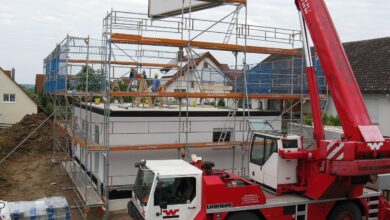Housing costs increased by 300% in eight years – NIESV

According to the Lagos State Branch of the Nigerian Institution of Estate Surveyors and Valuers, housing costs have risen by 300 percent in the last eight years.
This was revealed by the institute during a press conference for 2024 Estate Week that was recently held in Lagos.
Gbenga Ismail, the institute’s chairman, emphasized the necessity of establishing a state of emergency in the housing industry.
Ismail claims that Nigerians’ 1999 Constitution-guaranteed right to homeownership is being violated.
He made the observation, “If you look at it, how many people can afford a home now compared to how many people could five years ago? Naturally, then, incomes have decreased as well.
“How do you think people are going to afford homes if the cost of building has increased by 300 percent and your earning capacity has decreased by effective earning, that is, effective purchasing power has decreased by the same amount?”
According to Ismail, it has become increasingly difficult for people to find suitable housing in the nation due to the rapidly rising cost of rent.
The exorbitant expense of renting has made finding a place to live much more difficult. Without including rent, the ordinary Nigerian spends about N600,000 a month on needs like food, transportation, and utilities.
This is an annual spending of N6-7 million, without including the price of housing. When rent or mortgage costs are taken into account, homeownership becomes nearly unattainable for the typical person.
Therefore, as homeownership is getting more and more out of reach for many Nigerians, the government needs to address the affordability of homeownership.
MORE NEWS
- One hundred bungalow homes are being built by Jay Jay Okocha for the homeless
- Stakeholders: A growing population will increase demand for homes
- LASG reports that 80% of buildings in Lekki lack approval.
- REDAN promises to make home market reports accessible
He said that owning a home posed a security risk and that localizing building supplies should be the first step in finding a solution.
“You know the consequence,” he said, referring to the fact that 70% of building materials are imported due to shifting currency rates.
What is the thirty percent now? We have cement; how much does it cost now? We have concrete block work, which involves labor—an additional costly component—and cement combined with sand, among other ingredients.
He added that steel businesses such as Ajaokuta were going out of business and that iron rods were also imported.
Ismail said that first-time homebuyers ought to receive special attention, and that the government ought to concentrate on providing opportunities and incentives to enable people to realize their aspirations of becoming first-time homeowners.
“They will be able to secure a stable and prosperous future,” he said. Furthermore, priority should be given to essential workers in the homeownership process, such as police, military, and medical personnel. We can build a solid basis for our society by providing housing for these necessary workers, and everything else will fall into place.
The head of Lagos NIESV emphasized the importance of government initiatives that would facilitate citizen land acquisition and increase land availability and affordability for anyone.
Vice President Kashim Shettima said the nation needs N21 trillion to close the 28 million housing gap last year.
Additionally, the Federal Government has given contracts for the construction of 3,500 housing units in 13 states, according to information recently provided by Mr. Ahmed Dangiwa, Minister of Housing and Urban Development.




